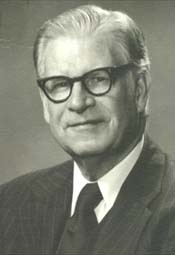 Father Hunger: Why God Calls Men to Love and Lead Their Families by Douglas Wilson
Father Hunger: Why God Calls Men to Love and Lead Their Families by Douglas Wilson
My rating: 5 of 5 stars
This should be required reading for all fathers, or for those who desire to be fathers. Leaders in every walk of life (especially pastors and teachers) will also profit from Wilson’s shrewd insights into Scripture, society, economics, politics, and the practical mechanics of family life. Wilson’s message on the importance of fathers may not be popular, but the evidence of a growing problem is undeniable. A disturbing number of our children are growing up without fathers, or with fathers who are “absent.” Even worse is the father who comes home every night to his family, but ignores them. This book kicked my lazy rear in this regard, but also gave pastoral encouragement to stop abdicating and to lay my life down for my children.
At this point, a little disclosure is in order–Wilson was my teacher in college and a mentor to all of us. I also had the privilege of volunteering briefly at the coffee and bookshop run by his father, Jim Wilson. So I have seen the effects of faithful fathering in Wilson’s own family. I mention this simply because some people read Wilson’s material and react sharply to his sarcasm and his strident approach. There is no doubt that Wilson holds his beliefs firmly and argues passionately for his convictions, but I wish sometimes that readers could see the twinkle in his eyes and hear his laughter, even as he says some things that sound outlandish to our postmodern ears.
Especially interesting is the research included in the Appendix. It is done by the firm, Economic Modeling Specialists, and shows the monetary damage done to our national economy by cycles of “delinquent fathers.”
But the point of the book is not to blame “the liberals,” or the “lazy poor.” Wilson identifies the problem as sin, which equally afflicts rich and poor, liberal or conservative. No one can deny the importance of fathers in the lives of their children, and readers should apply the lessons of this book to themselves first. After they’ve focused on being fully present in the lives of their own children, perhaps they can think then about giving the book to their neighbors (Matt. 7:3).
View all my reviews
(Disclosure of Material Connection: I received this book free from the publisher through the BookSneeze®.com <http://BookSneeze®.com> book review bloggers program. I was not required to write a positive review. The opinions I have expressed are my own. I am disclosing this in accordance with the Federal Trade Commission’s 16 CFR, Part 255 <http://www.access.gpo.gov/nara/cfr/waisidx_03/16cfr255_03.html> : “Guides Concerning the Use of Endorsements and Testimonials in Advertising.”)







